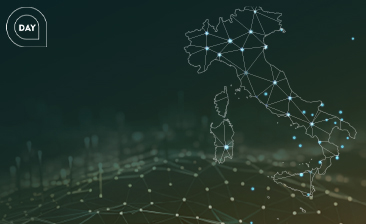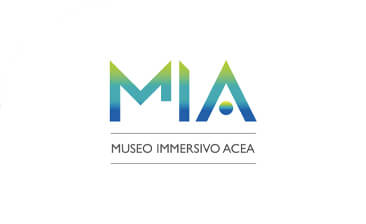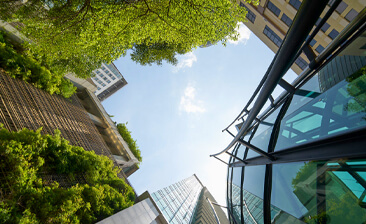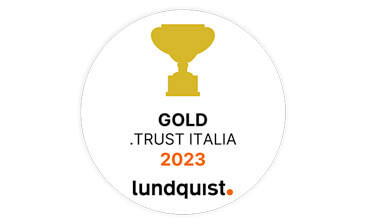Involvement of twelve companies from Germany, Belgium, Greece and Italy. Acea leads the “Italian pilot” in collaboration with RSE, ENEA, Siemens, Apio and Engineering
The agreement, also thanks to the use of blockchain technology, is changing the commercial model for electricity consumption management and transforming the customer into a partner who contributes to balancing supply and demand
The General Assembly of the Project PlatOne - PLATform for Operation of distribution Networks – a European consortium of companies and institutions, financed by the European Union within the scope of the “Horizon 2020” Framework Programme for Research and Innovation, has been held at the Montemartini Power Plant in Rome.
The objective of PlatOne is to develop and test a state-of-the-art technological solution that can enable energy flexibility mechanisms within an open and inclusive market. The project takes up the ambitious challenge launched by the European Union: to meet the growing need to alleviate in the short and long term network overloads, due to the ever-greater penetration by variable output renewable energy sources and heating, cooling and electromobility systems. With a cross-border collaboration comprising twelve public and private sector partners (Acea Energia, Areti, Apio, Avacon, BAUM, Engineering, E.DSO, Hedno, Athens Polytechnic NTUA, RSE, Siemens) from Italy, Greece, Belgium and Germany, coordinated by the German University in Aachen (RWTH Aachen University), the project will be carried out over a period of four years. The solutions identified by PlatOne will be shared with the scientific community, the major sector stakeholders and end users and implemented in all countries taking part.
Acea, through Areti and Acea Energia, together with Siemens, Engineering and the startup Apio, will be responsible for coordinating the “Italian pilot” to be implemented in the Rome area, thus becoming the first key player in the path towards a new energy market model, mapping out a radical and innovative change of paradigm that has hitherto never been tested at national level.
Areti’s pilot, via the development of an innovative technological architecture, built around the application of blockchain, will be able to develop a new network management model based on flexibility in the urban area of the Capital. This solution will allow users to actively participate in the optimised management of the network, by becoming a partner who offers flexibility services and contributes towards guaranteeing the energy demand-supply balance to the benefit of the entire community. Acea Energia, as reseller, will aggregate the flexibilities offered by its customers, proposing them to the distributor. The revenues deriving from the sale in question will then be shared between the aggregator and the consumer. PlatOne is therefore promoting a new network management approach to optimise its operation and enhance its stability and resilience also in the case of large renewable energy outputs. This is thanks to a combination of flexibility measures, such as storage, domotic technologies and automation.
Under the project, the Siemens team in Italy will make available skills and experience accumulated over the years in the development of more effective methods of interaction between the transmission system operator (TSO) and the distribution system operator (DSO), functional to the exchange of information for the monitoring and acquisition of ancillary services (strategic for network load balancing, voltage regulation and congestion management) on the part of new distributed energy resources interconnected with the distribution network.
For the first time, this new model of approach to the service will be tested in Rome-Centocelle thanks to an agreement signed between Areti and ENEA (Italian national agency for new technologies, energy and sustainable economic development). The tests will involve both some of the residents in the Roman district, who are already collaborating with ENEA on issues concerning the efficient use of energy, and the “smart village” at ENEA’s research centre “Casaccia”. As part of the tests, ENEA will make available state-of-the-art platforms and solutions for efficient energy management, together with dedicated skills and infrastructures, including the “smart building”, a hi-tech building, equipped with a photovoltaic plant, storage battery and mechanism for “intelligent” energy management, able to reduce the need for exchange with the electrical grid, thereby decreasing the costs to the end user. Further tests will concern the electric vehicle charging stations supplied to Areti, as well as Acea’s Tor Di Valle production plant and other residential customers in the area of the Capital equipped with photovoltaic facilities and storage systems.
In addition to its involvement in the “Italian pilot”, Research on the Energy System - RSE SpA is in charge of the project’s Work Package, which provides for a scalability and replicability assessment of the solutions tested by the partners in the other three countries, thus helping to establish the European added value of the technologies and the actual adoption by member states of market models and rules that facilitate the integration of customers and prosumers in the integrated management of production and load.
The overall PlatOne project envisages investments in research and innovative interventions on the electricity networks, the market platforms and interface tools totalling 9.5 million Euro, of which 7.5 million will be funded by the European Commission. Acea Group will invest a total of around 1.4 million Euro in the project, an amount already contemplated in the 2019–2022 Business Plan for the development of its networks.
Discover the latest news and initiatives of the Acea Group

Acea for World Energy Saving Day

Visit the virtual museum about the history of the Acea Group

The channel for the commercial requests on land urbanisation

Acea turns the spotlight on the Rome Film Festival 2023

Acea is in the "Gold class" in the .trust research

Read more about our culture of inclusiveness